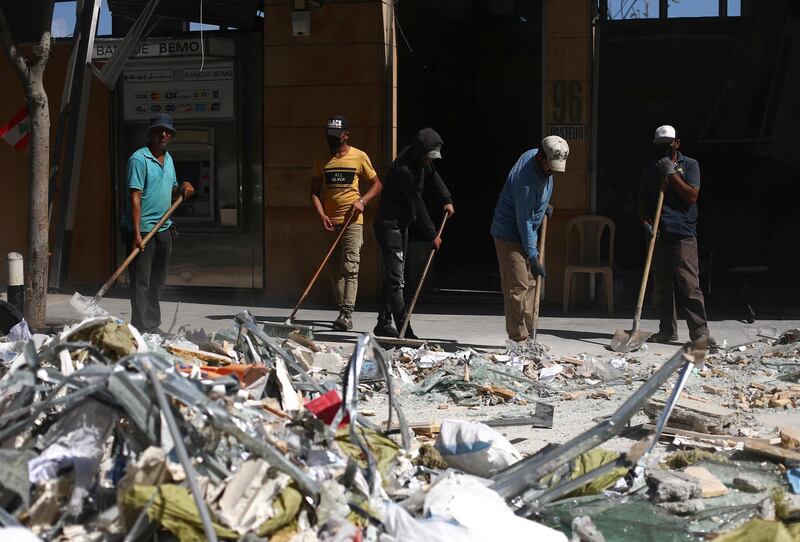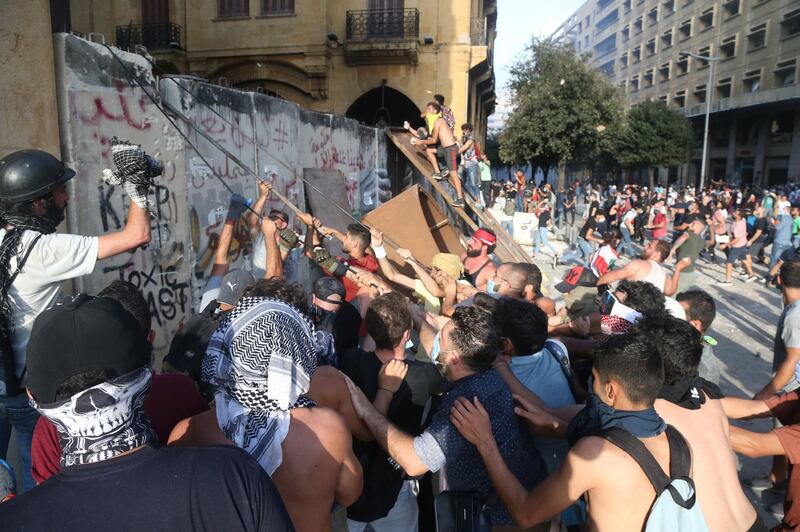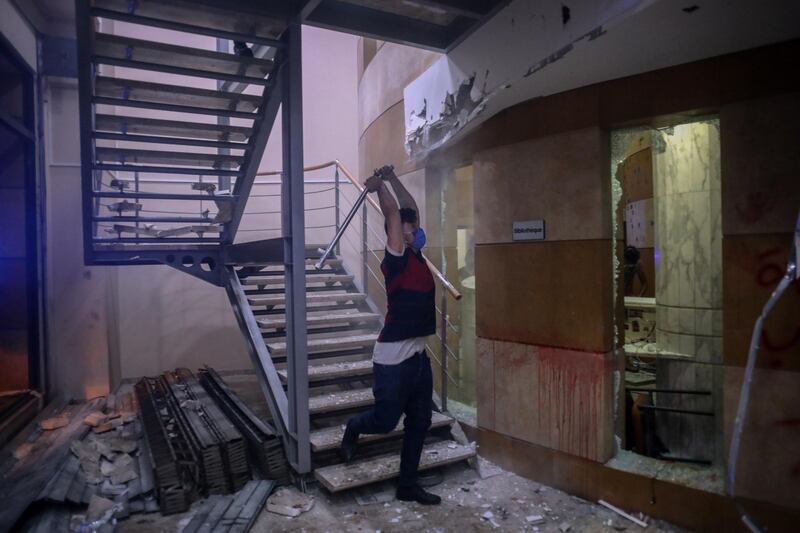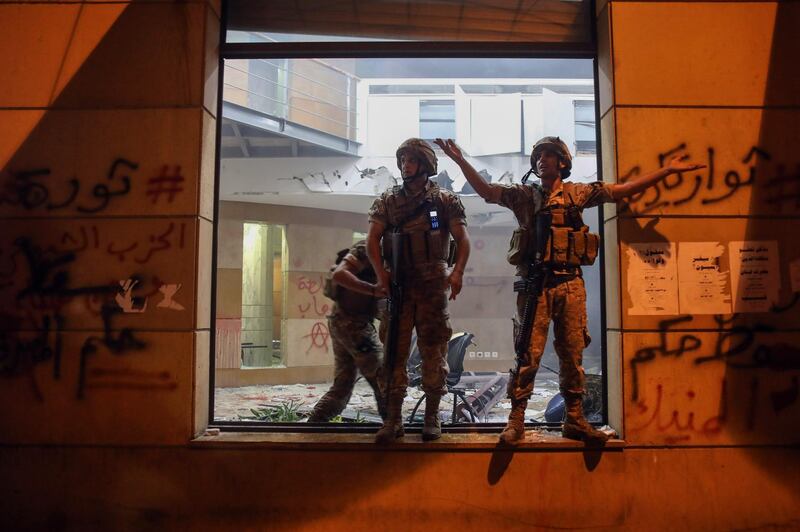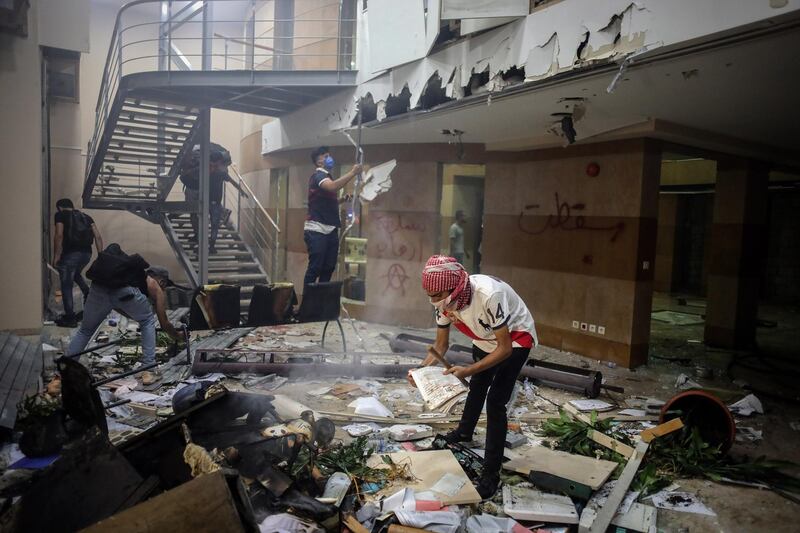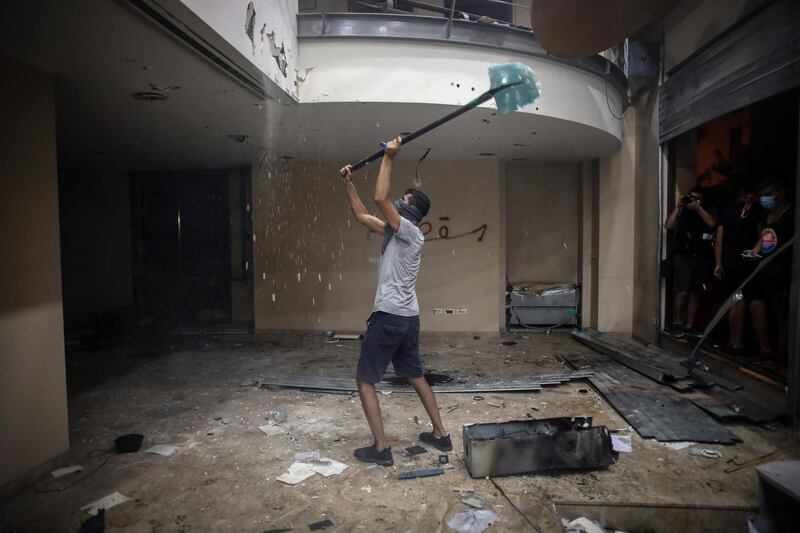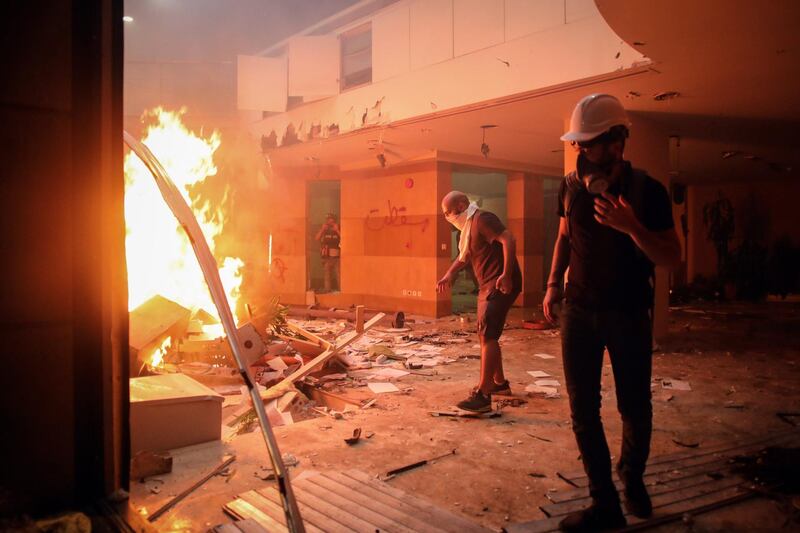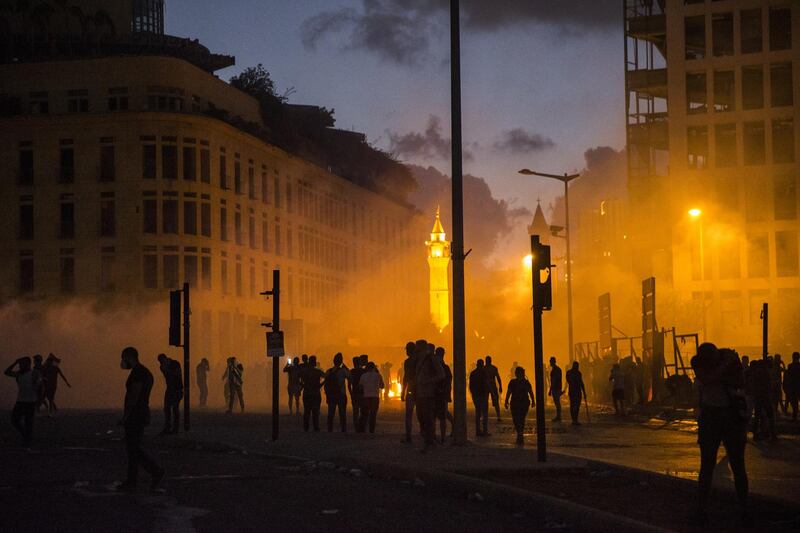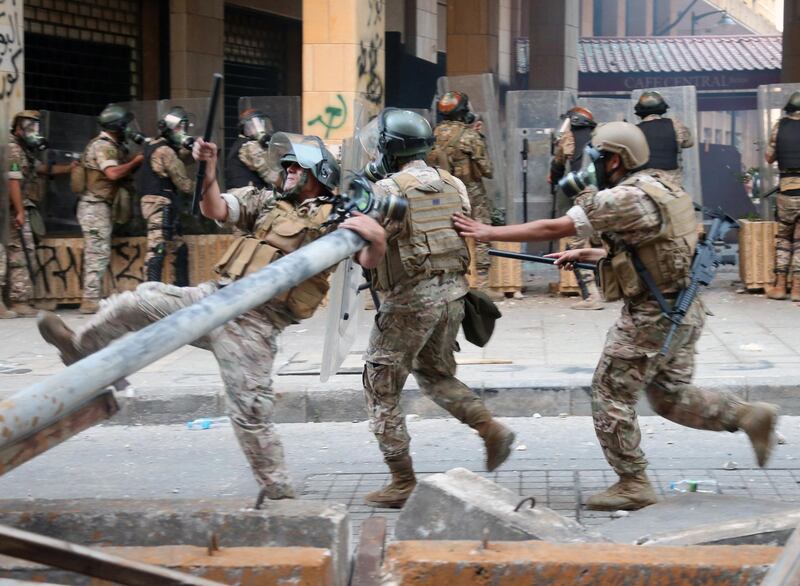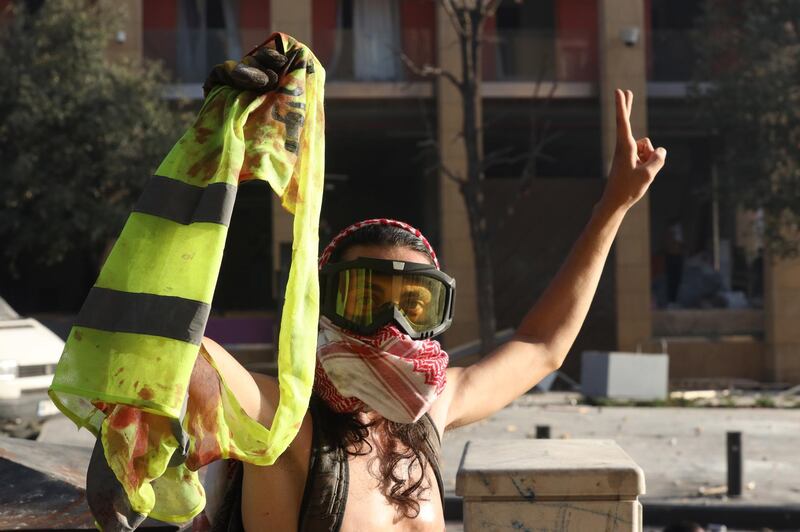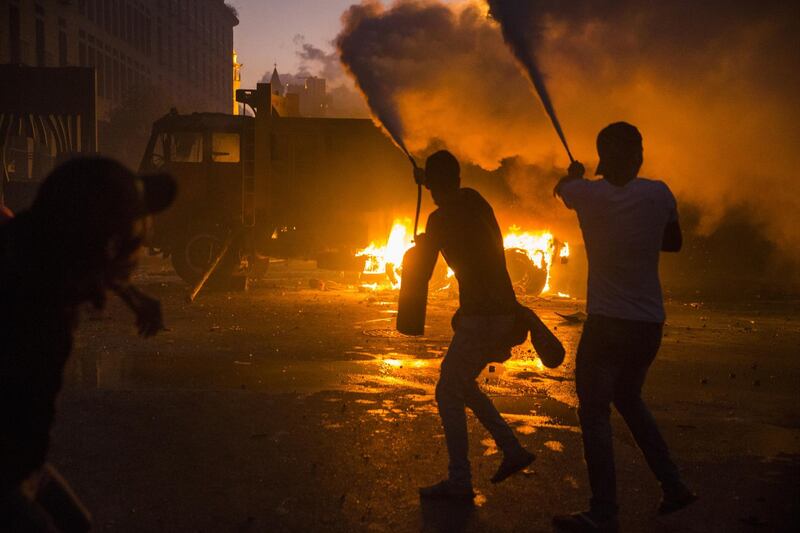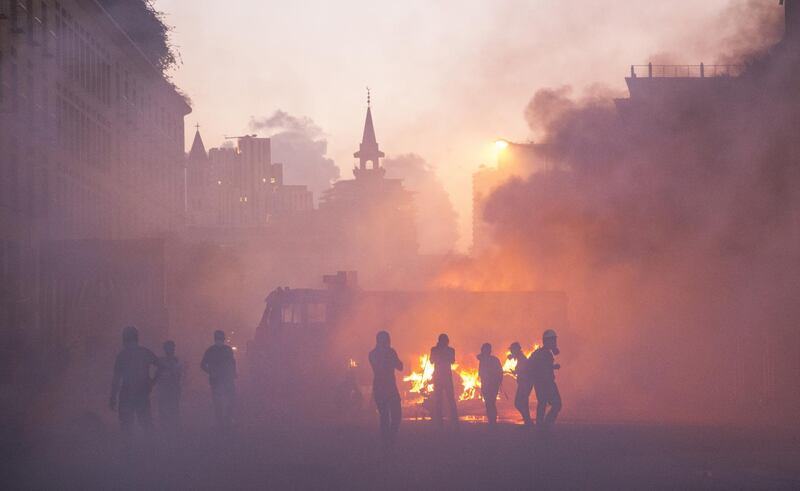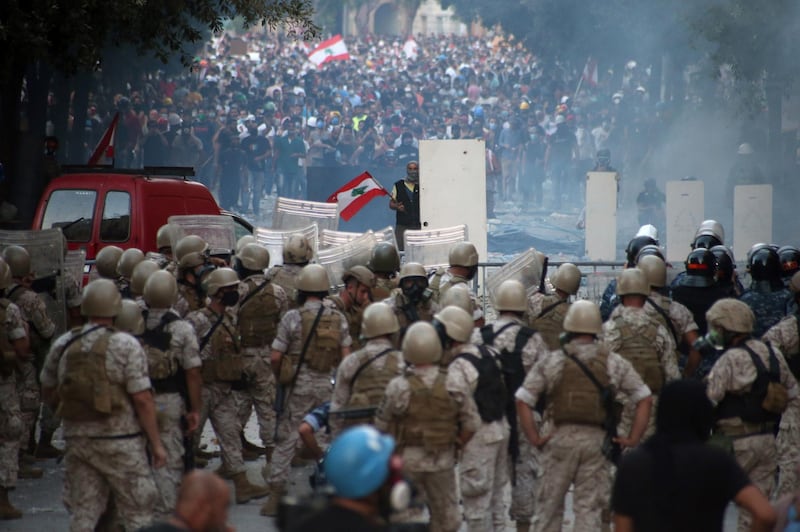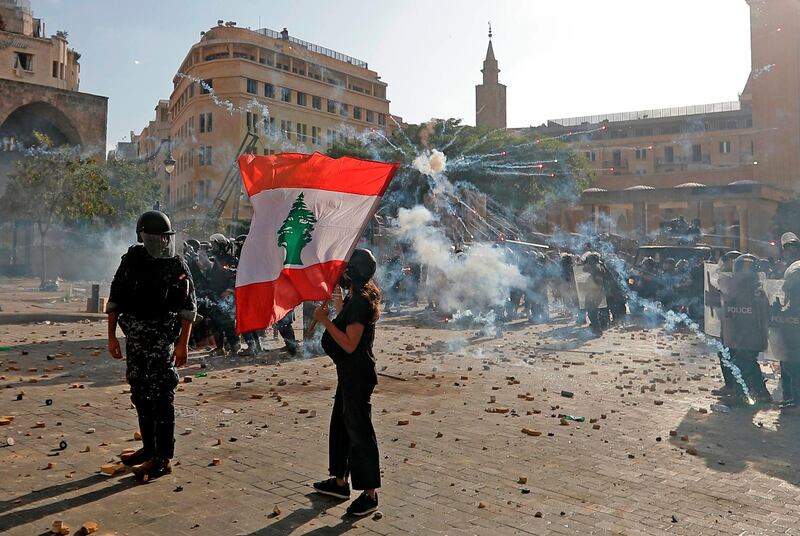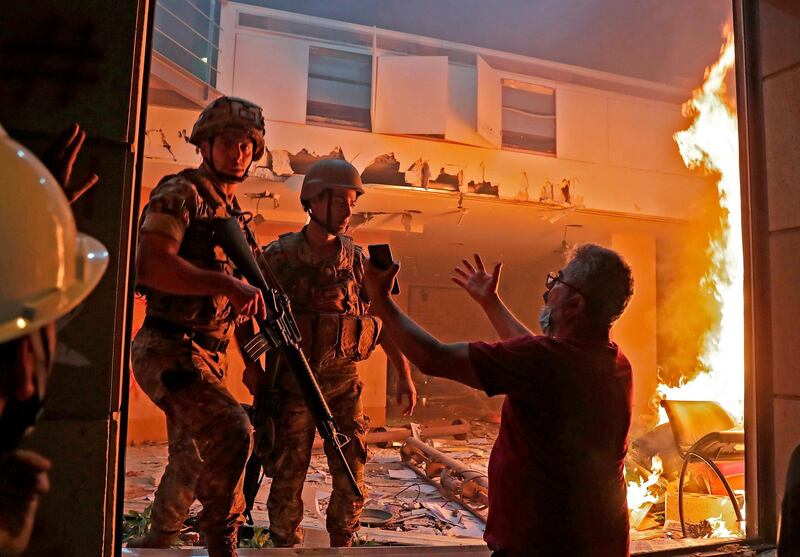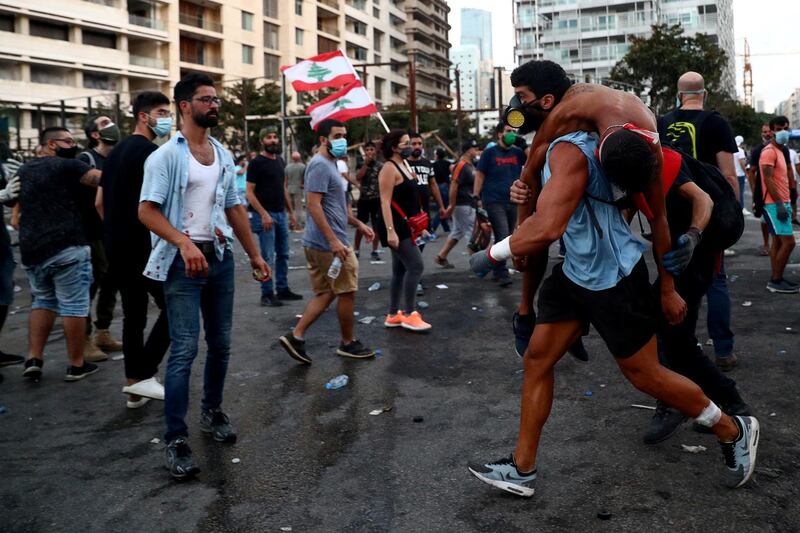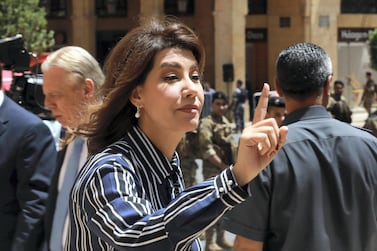French President Emmanuel Macron urged world leaders to quickly provide emergency aid directly to people affected by the blasts in Beirut last Tuesday.
Mr Macron made his plea as he opened a UN donor conference to raise millions towards rebuilding the shattered Lebanese capital.
Less than a week ago, a blast caused by a fire at Beirut’s port ignited 2,700 tonnes of ammonium nitrate.
The explosion killed at least 158 people and wounded 6,000, leaving more than half of Beirut with damage worth at least $10 billion (Dh36.73bn).
"We must act quickly and efficiently so that this aid goes directly to where it is needed," Mr Macron said.
"We must all work together to ensure that neither violence nor chaos prevails. It is the future of Lebanon that is at stake."
A night of anger and protests in Beirut
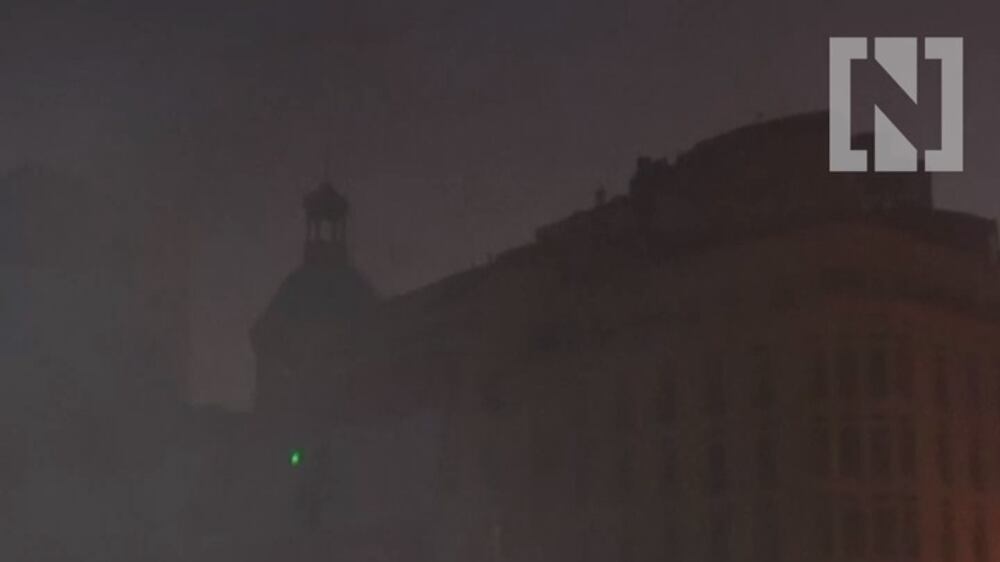
France announced that a helicopter carrier and a cargo ship loaded with aid and supplies was heading to Beirut.
Paris is sending 18 tonnes of medical aid, including medicine, vaccines and hygiene kits, and 663 tonnes of food aid, its foreign ministry said.
Lebanese President Michel Aoun thanked the international community for its assistance and solidarity, and said the damage from the blast was beyond the country’s ability to deal with.
"The earthquake that struck us while we are in the midst of economic and financial crisis, in addition to the refugee crisis and the impact of the coronavirus pandemic, makes confronting its repercussions beyond the capacity of this country," Mr Aoun said on Sunday.
"Many officials and international relief teams who rushed to Lebanon sensibly examined the scale of the tragedy that affected all sectors, especially health, education, reconstruction and food security."
More than 30 international leaders and government officials took part in the video conference organised by France and the UN.
They included US President Donald Trump, Jordan’s King Abdullah II and Egyptian President Abdel Fattah El Sisi.
Officials from China, and European and Gulf countries also attended.
US President Donald Trump said on Sunday that he would send additional planes loaded with medical supplies, food and water and would give "substantial" aid to Lebanon, though he declined to give a specific figure.
"We haven't given a number, but it will be substantial. On a humanitarian basis, we have to do it," Mr Trump told reporters in New Jersey.
Last week, the US pledged $15 million (Dh55 million) in support of Lebanon's recovery, in addition to three US planeloads of aid that have already been sent to Lebanon.
Immediate needs include about $85m towards medical relief.
Money will also be directed at saving crumbling buildings and reconstructing damaged schools and hospitals.
At least 200,000 housing units were damaged, said a report presented to the conference.
The UK pledged £20 million (Dh95.8m) to help feed people after grain silos were damaged in the blast and the main import centre was destroyed.
Britain said the money would go to the World Food Programme to provide food and medicine to the most vulnerable.
"The devastation we have seen in Lebanon this week has left people without homes, medical care and wondering how long it will be until the country's food supplies run out," said the UK International Development Secretary, Anne-Marie Trevelyan.
“Today, the world is coming together to stand by the Lebanese people and as one of the biggest donors to this crisis so far, the UK is pledging more urgent support to help all those affected by this terrible disaster.”
The donation is on top of £5m of assistance already made available by the UK, including support for the British Red Cross for the emergency relief effort.
Germany pledged €10m (Dh43.3m) for reconstruction.
“Even after the worst of the rubble is removed there will remain a lot to do,” said the German Foreign Minister, Heiko Maas, referring to Lebanon’s other crises.
No target was set for Sunday’s conference but a French official told Reuters that there would be “no blank cheque to the Lebanese government”.
Mr Macron and other officials from the UK, Germany and the US insist there will be oversight of aid to ensure reconstruction money is not lost to corruption or white elephant projects.
Much of the immediate emergency aid is being funnelled to international NGOs, the Red Cross and UN agencies.
Mr Trump said three US planeloads of aid had already been sent to Lebanon and hinted at more being made available.
A top US aid official said that America’s $15m in assistance would not be under the control of the Lebanese government, but would go directly to those who need it most.
USAid acting administrator John Barsa said assistance would be directed to medical authorities at the American University of Beirut and the American Lebanese University.
A French official said Iran and Israel would not be taking part in the conference because of geopolitical issues.
On a visit to Beirut on Thursday, Mr Macron promised protesters in the street that he would ensure any money raised would go into the right hands.
"We will also put in place clear and transparent governance so that all of this aid, whether it is French aid or international, is directly channelled to the people, to NGOs, to the teams in the field who need it, without any possible opacity or diversion," he said.
Mr Macron's visit brought relief on the streets of Beirut.
Despite gaining independence from France's mandate in January 1944, the two nations remain close, with French widely spoken in Lebanon.
